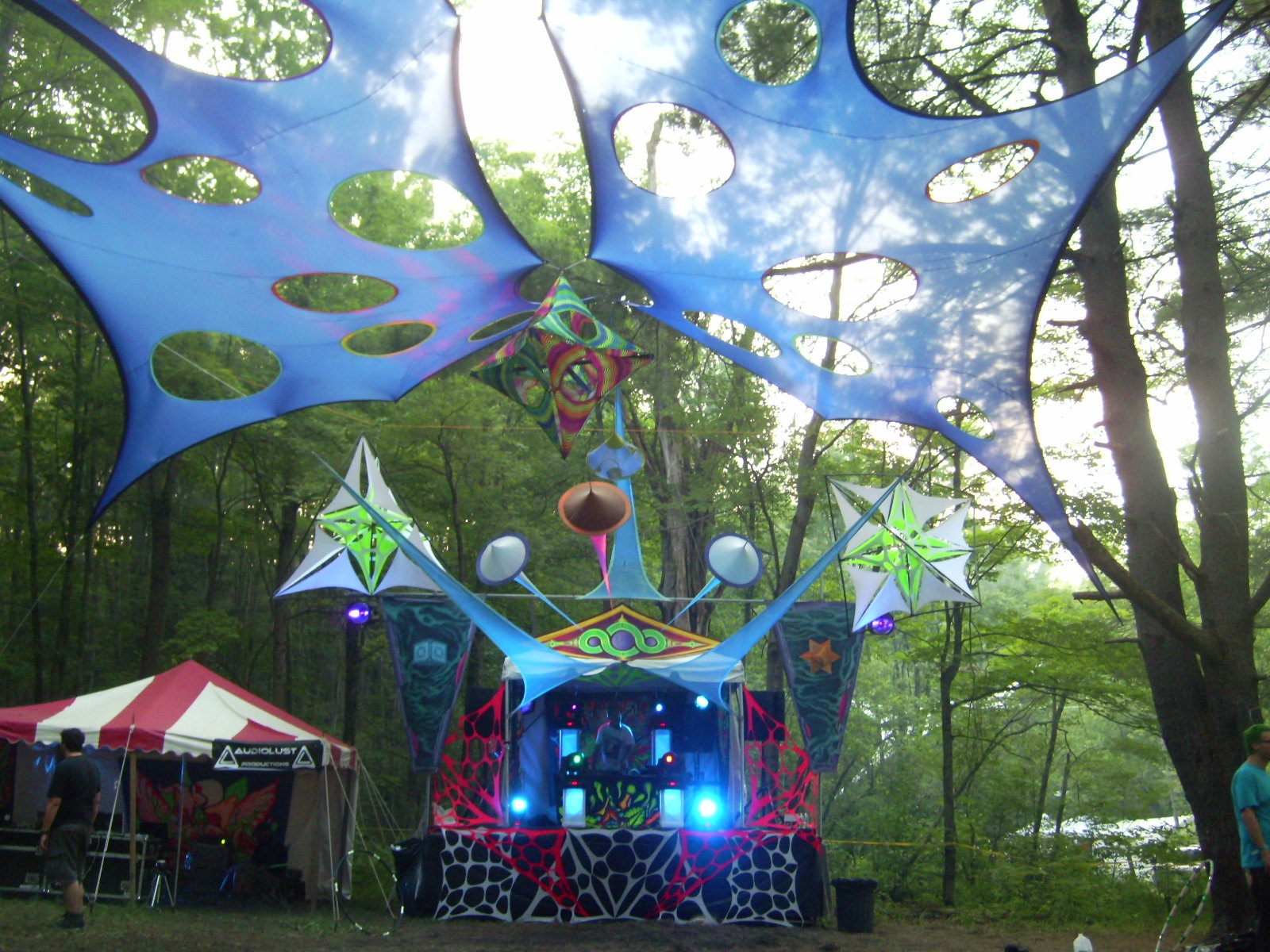But it wasn't the music or the people, great as it and they were, that made me most happy about being there; it was the forest.
Orb was my fifth multi-day camping festival since arriving in the States late last August, but my first set in a truly wooded setting. It was glorious: haphazard trees interspersed with ferns spread thickly across a hillside leading down to a lake, in which sat a flower- and moss-covered island, a single sapling rising from the middle. In a word: pretty.
There's nothing like being out in the bush to relax your mind and recharge your emotional and physical batteries. Back in Sydney we used to aim to get out of the city at least once a month. If I go too long without escaping the concrete jungle for trees and scrub I get worn down and frustrated. I had forgotten this and have, somehow, gone ten months since really getting away from civilization. I suspect that this lack of contact with nature is not uncommon for city dwellers, which is to say most of us. And I don't think it's good for us. I know it's not good for me.
Human civilization creates the illusion of order, filled with straight lines and moving machines. But underneath all that is chaos, fueled by the bewildering and often-bizarre actions and desires of humankind. The forest, meanwhile, is chaotic on the surface, the unique contortions of trees and folds in the landscape. But underneath the chaos is order, a world produced by laws which are complex and yet somehow simple, embedded deep in our unconscious. When you allow yourself to feel it the forest can feel, on a very primal level, like home.
I think much of our societies unsustainable lifestyle can be connected to a lack of contact with nature. People grow up completely disconnected from where their food, clothes and goods come from and where their waste goes to. They feel the effect of climate change as unseasonal weather, but usually do not see the real impact on watersheds and landscapes, like the cracked and blasted creek beds we so often see in Australia. It is spending solid time in nature, going to sleep in your little tent and waking up to the sounds of birds and rain on the fly, that reminds you that we are a part of this life force, that we come from the forest and rely on it still for so much.
Part of the relaxation of being out of the city is unhooking from screens. I'm away from my computer, I switch off my phone, I settle into a very different pace; slower, more measured, more aware of my surroundings. As someone who lives online I luxuriate in the peace and quiet of days away from email, text messages and phone calls, spent in good conversations, exploring, being in my body. If you're doing hard, emotionally-draining work, like organizing, advocacy and social entrepreneurship, finding time to get away can feel impossible, but it's critical to your sustainability and effectiveness. It allows you to step back and reflect on what's working and what needs to be changed. It allows your mind to meander down new mental paths, unlocking creativity and insight. It reconnects you to your humanity, and the slow pace of the sun moving across the sky. Unhooking from the constant pulse of digitized information and conversation helps you to understand it while the resulting time to think and consider helps you to understand yourself.
We are hoping to get back to the same location for Desiderata Festival in August, but I don't want to wait that long to get back out into nature again, it's too important to me, too affirming and re-energizing. And, frankly, too much fun.
